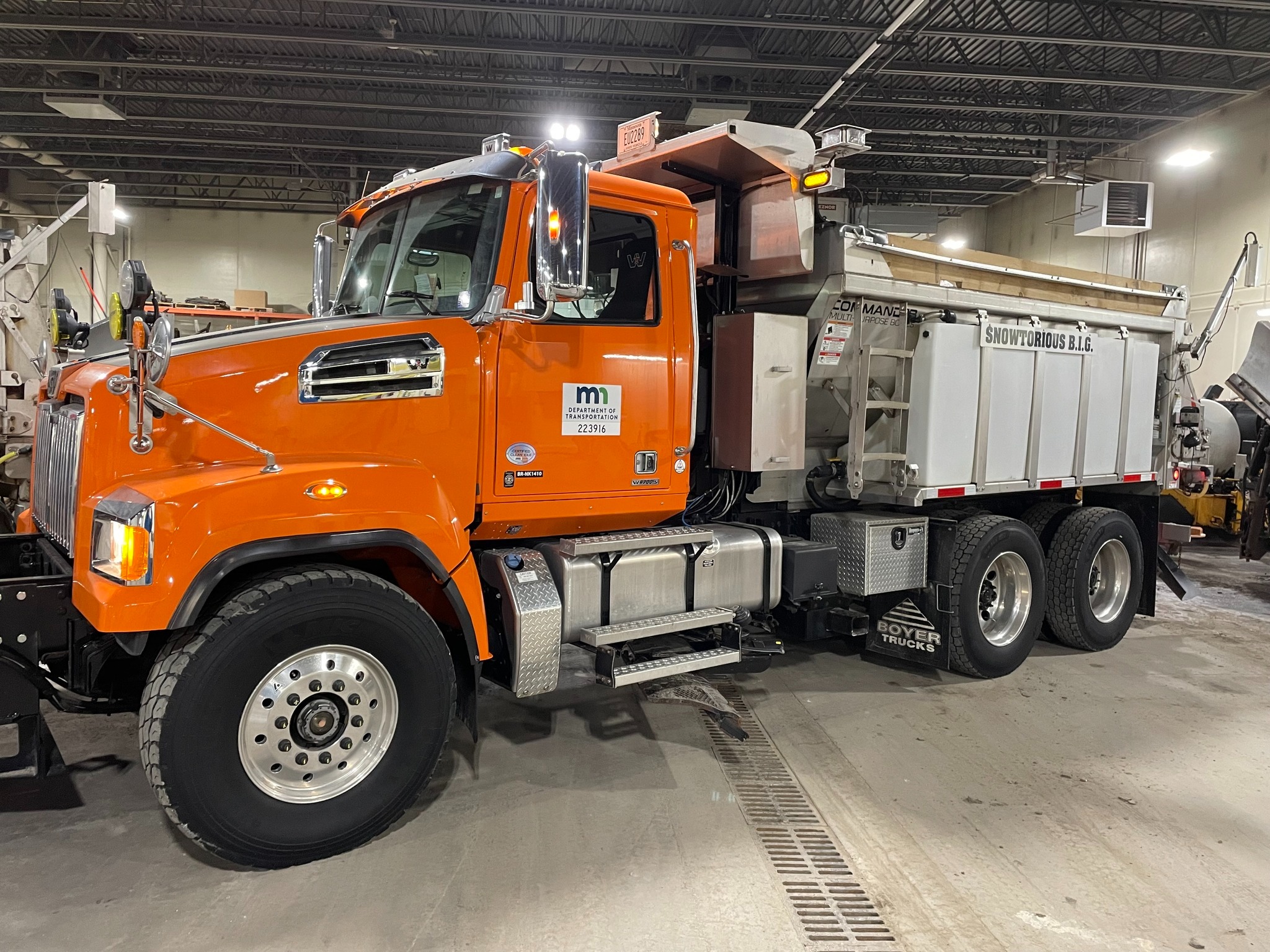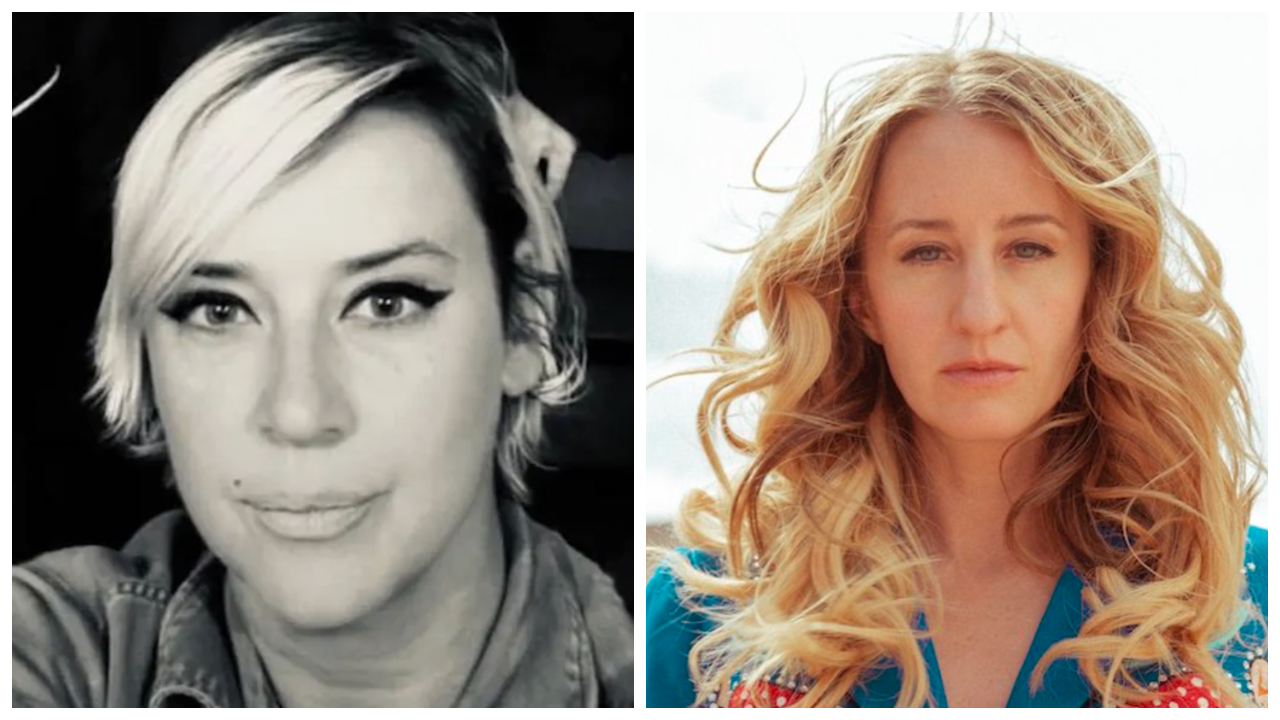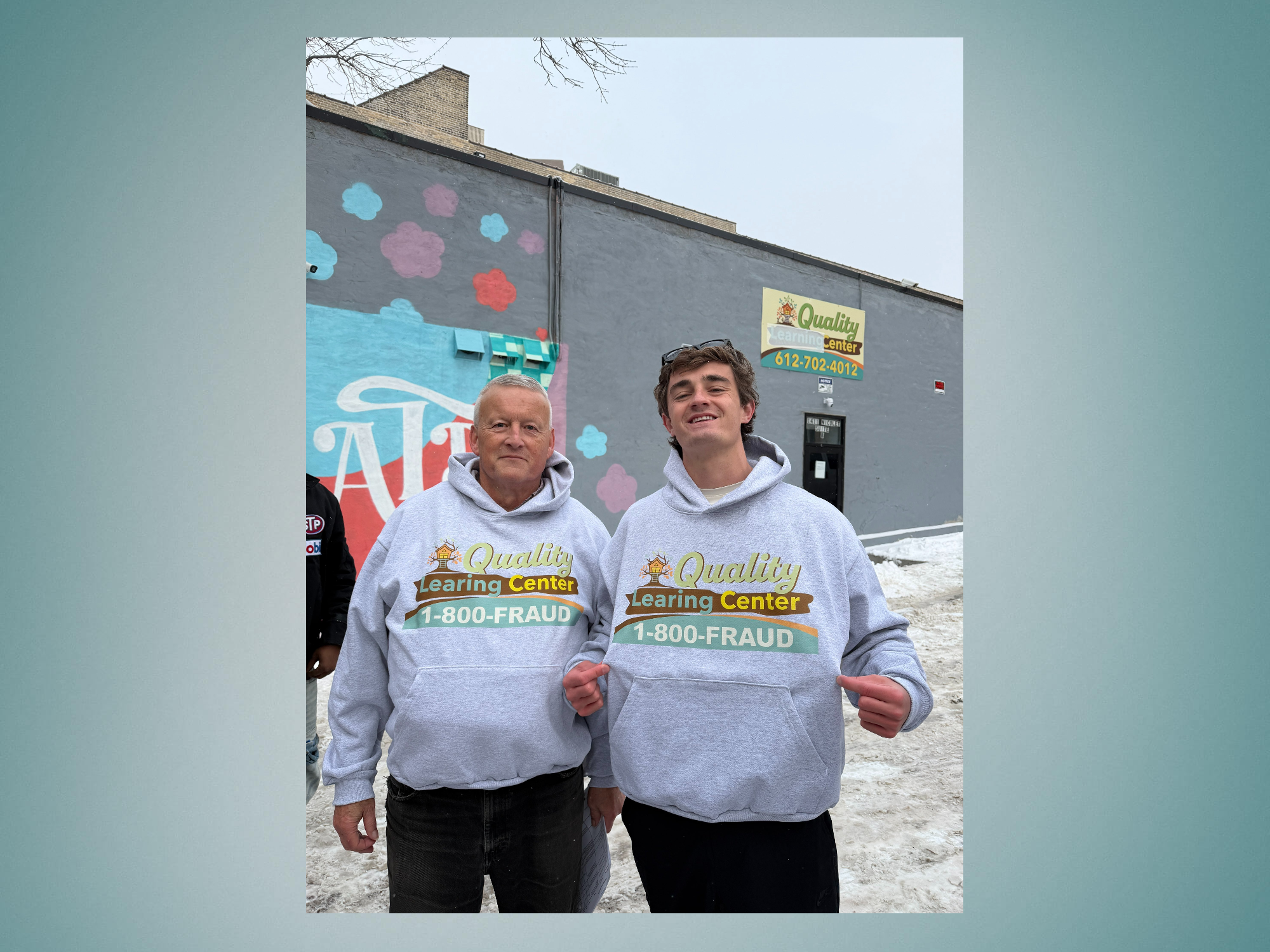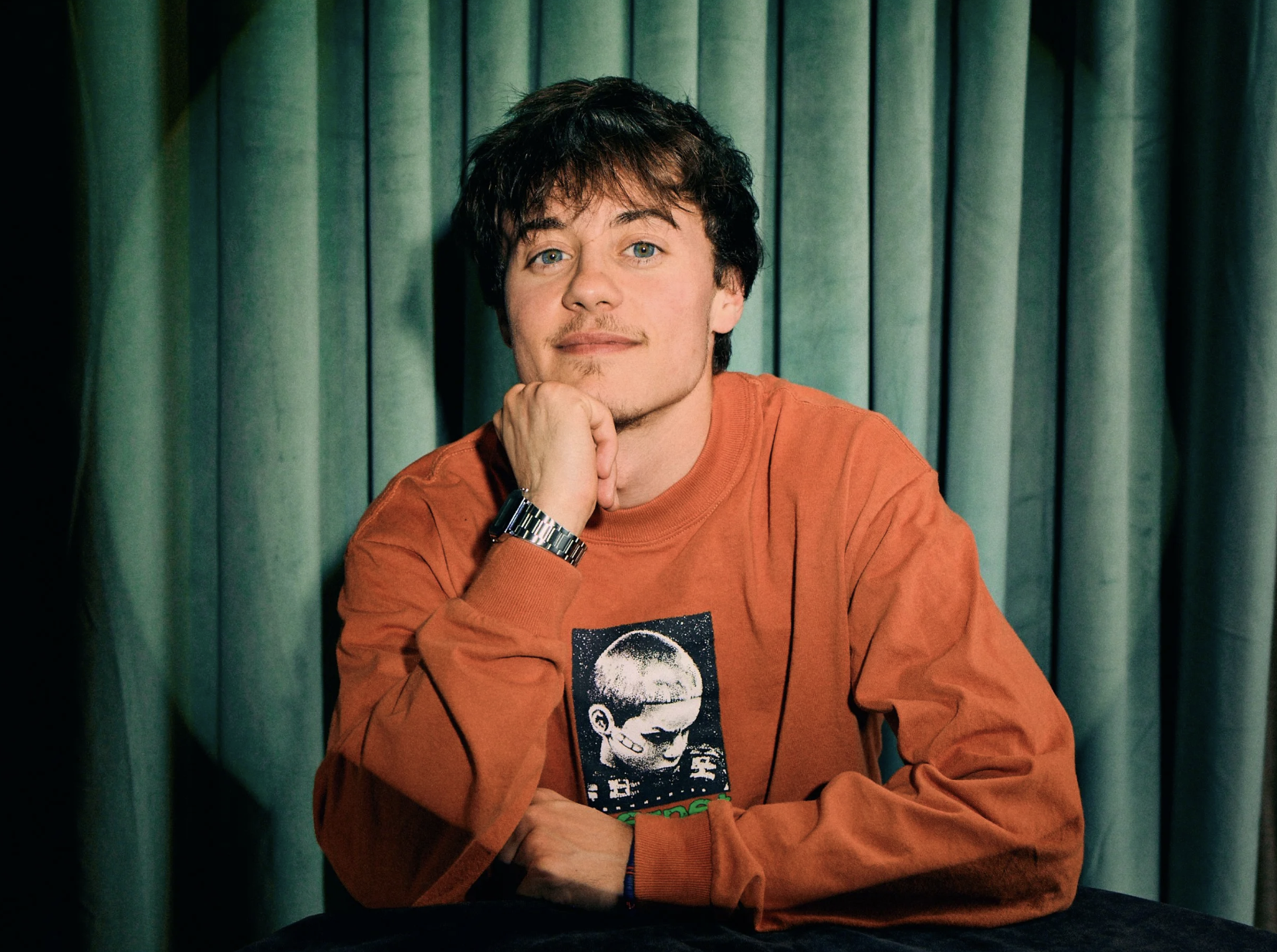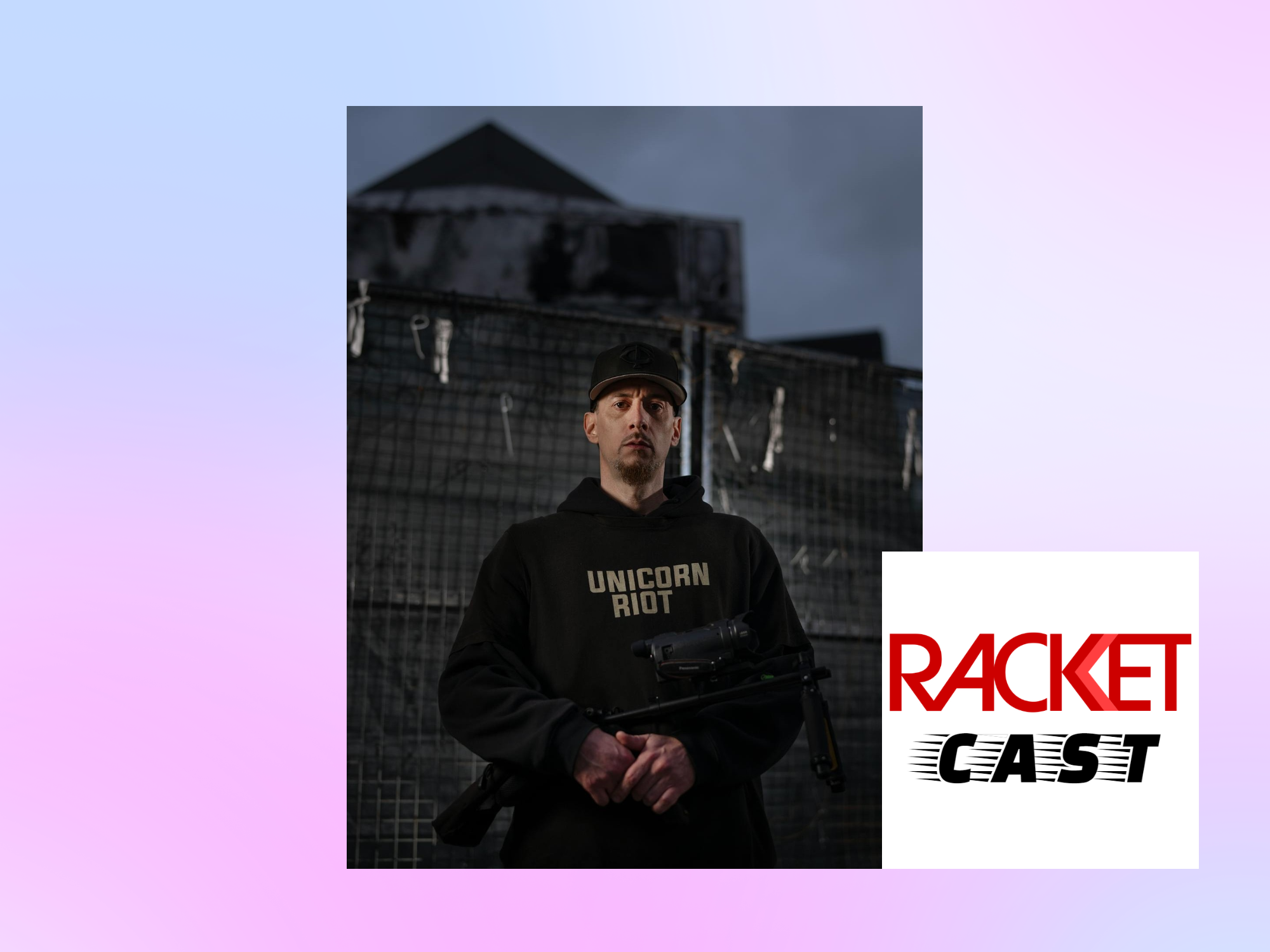Luke Martin and Yvonne Bordowitz, seated behind music stands, take turns playing a few slow notes followed by long pauses. He’s on guitar, she’s on trumpet, and the 10 or so listeners who’ve gathered on this smoldering early July evening at Resource, a multimedia creative hub in Minneapolis's Phillips neighborhood, may be encountering something profound.
Or, as someone next to me would later wonder, “Were they pranking us?”
They’re not. The piece was four pages of a 4,000-page score by Manfred Werder, one of Martin and Bordowitz’s musical heroes. But as Martin explains later, “The intuition of a prank is not far off. I mean, it's silent music.”
Along with fellow experimental composer Noah Ophoven-Baldwin, Martin curates shows every other Thursday at Resource, presenting artists from the tight-knit Twin Cities experimental music scene who perform improvisational and prefigured music. The deeper you dig into the scene, the more interwoven the community appears.
“There’s a very, ‘If you build it, they will come’ kind of aspect,” says Alana Horton, an experimental musician who performs under the moniker alone-a. “We're such a small city and we have such a thriving scene but it’s because of these folks that we have the scene we do… Just having a place where people really want to listen in a deep way to weird experiments has been such a blessing as an artist.”
What’s With All the Noise?
“Experimental” is an umbrella term that takes in noise, drone, ambient, and any other sort of music without traditional structures—especially when improvised—meant to explore the boundaries of sound and challenge musical conventions.
According to Shane Donahue, who creates music under the moniker i once knew a ghost, experimental music the truest form of self-expression. Donahue is also head curator of Noise Party, an event that endeavors to open up the possibilities of what music can be; its 11th edition will happen this weekend at the Cedar Cultural Center.
Donahue began planning Noise Party with Aaron Baum in 2021; he has produced the event independently since the third edition. Before the pandemic, Donahue and Baum had enjoyed shows around town put on by Tourniquet Noise and Fractal Geometry, and they were worried that this sort of nightlife might not return when clubs opened back up. (Both shows have started up again and host occasional events at Red Sea.)
Noise Party’s first show was a room full of synthesizers that drew a healthy crowd at Mortimer’s in 2022. The transition between acts was seamless, inspired by Drone Not Drones, the 28-hour sound marathon to benefit Doctors Without Borders held annually at the Cedar. Future lineups would feature Lady Midnight, Alan Sparhawk, Zak Sally, as well as people who have never released recorded music.

Another prominent series that explores left field music in the Twin Cities is Enter the Void, an ongoing showcase that multi-hyphenate artist Xochi de la Luna began organizing in 2023. After curating Monday night experimental shows at the White Squirrel Bar in St. Paul and being inspired by Drone Not Drones and Tourniquet Noise, she set out to focus on artists who may not receive as much attention.
“I wanted to host a space with my knowledge of the experimental scene here in the Cities, because there's not a lot of Brown producers in the city,” she says. “And I'm hoping that by producing these shows and trying to book as many Black and Brown folks, that eventually everybody, not just Black and Brown folks, realizes that you don't have to be a specific person or have money to make this kind of music.”
The way de la Luna speaks about the project makes defying music norms sound like an act of resistance.
“Experimental music is exploratory; it's radical; it's like a response to institutionalized, classical compositional music,” she says. “It's music you would call ‘far out’—or as Minnesotans would say, ‘interesting.’”
Enter the Void has presented at Berlin, the Artery, Bryant-Lake Bowl, and several house venues, including de la Luna’s own backyard stage, the Dollhouse, which prioritizes BIPOC and trans musicians. The series's most recent home has been St. Paul's Can Can Wonderland, where shows will return in September. De la Luna says the kitschy entertainment complex is welcoming to Enter the Void’s spirit—just as long as the whole night isn’t pure noise.
Welcoming the Curious and the Skeptical
By booking a wide variety of improvisational acts and experimental composers, Martin and Ophoven-Baldwin hope showgoers will find something thought-provoking, but acknowledge the challenge for newcomers. Martin gives the example of an artist once playing a dog whistle tone for 20 minutes.
“I mean, we're not trying to sell anybody on the music because one of the nice bits is that it can't really be sold,” he says. “It's very hard to describe. It's something that lends itself to doing the music to understand it, as opposed to articulating it.”
Still, the duo strives to create a welcoming environment.
“If someone was curious about coming to a show on our series, and they were not familiar with the music in general," Ophoven-Baldwin says, "I think it is a great way to be in a space that is focused and feel that the audience is there—and we're all sitting together—and to hear that music can sound the way that it is within our music series.”
To increase Noise Party’s accessibility and not pigeonhole the project, Donahue books eclectic bills.
“I want to construct the show in a way that it's not just one genre throughout the entire night,” he says.” I want it to be something different, something exciting around every single corner.”
He’s met people leaving the show with the reaction, “This is incredible. This is awesome. This is something I've never experienced before.” And he appreciates the Cedar’s all-ages policy, which gives younger music fans still sorting out their tastes the opportunity to embrace the weirdness.
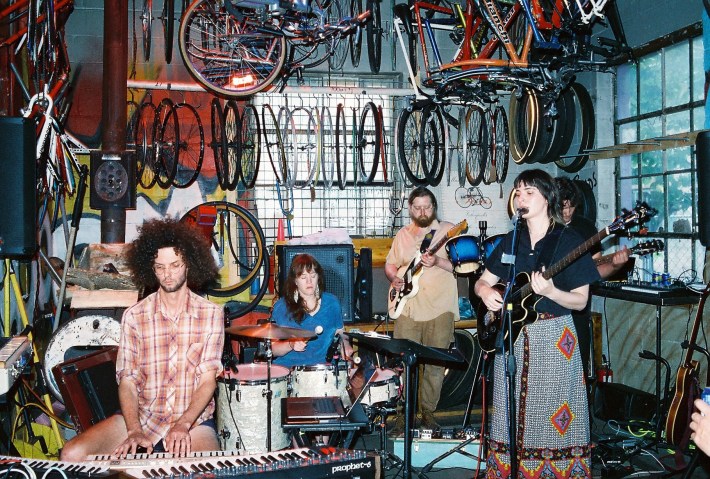
Horton, aka alone-a, is someone who has eased her way into noise music as a result of Donahue’s efforts. Her work tends to be on the more accessible end of noise, including melodies and harmonies that listeners can grasp onto.
“Artists at Noise Party are giving you all kinds of varieties of what noise could mean,” she says. “That kind of sampler pack I think is a really great way for people to enter in, and then if you don't like a thing, the sets are like 20 minutes long, and there’ll be one right after it.”
Horton started her solo project in 2018; Ophoven-Baldwin, who occasionally booked shows at Kitty Cat Klub (RIP), invited Horton to perform. She estimates that 70% of the shows she played during her first year were at KCK and says the venue’s bookers, including Ryan Olcott of 12 Rods, were pretty open to anything—and that if Ophoven-Baldwin hadn’t invited her, she probably would have never put herself out there.
Listen Up!
Another important venue to the experimental music scene is Mirror Lab, a studio collective and 500-square-foot programming space in Powderhorn that hosts non-traditional music and sound events, as well as displaying visual art. John Marks, an artist and founding member of Mirror Lab, has worked with local producer Jesse Whitney for the last two years to put on the Envelop Deep Listening series, which explicitly focuses on experimental ambient music.
The premise is pretty simple.
“Envelop Deep Listening is really about coming with the intention of listening and really nothing else,” Marks says. “Listening and building community around listening.”
At an Envelop Deep Listening show in July, a board full of tangled colorful wires sits on the table at the front of the room. Marks introduces a touring duo, Dovetail, as Raub Roy sits down and places a custom speaker under his tongue and Dianne Lynn picks up her electric bass. The improvised sonic loops are so tranquilizing that even the random squeaks and gnarls aren’t jarring. Quickly the unexpected becomes expected.
“One of the reasons why I find experimental music performance so important is that uncertainty—that not knowing what you're going to experience,” Marks says. “So much of our musical experience is in this digital age, in the age of streaming and AI. So much of what we hear in the musical art form is prescribed, and there is so much room for chance, for exploration, for quite frankly, failure and unintentional occurrence in experimental music.”
After the Dovetail set, Roy tells me about a show happening in a few days at Studio Toile d’Angles in Near North where Paul Metzger will play, and I suddenly feel very in the know: I’d seen Metzger on the Resource bill a week prior—a scene veteran whose sound swung back and forth between a peaceful thunderstorm and a throttling car engine as he strummed a custom 20+ string banjo.
“Run To Go See It”
While experimental musicians are a tight community, it can be a challenge to find spaces to host experimental music. Horton, who has worked in communications director roles at the Cedar and now-closed Bedlam Theatre, thinks the scene is in a transition period.
“The crowds that are drawn for these events aren't huge, and it's a lot of sitting and listening, which is not a super bar or party kind of crowd,” she says. “When things are tighter than ever for venues, and they're sort of relying on beer sales or food sales, it's a tough fit sometimes for this stuff to find a home.”
Horton moved to the Twin Cities 15 years ago for college and remembers since-shuttered smaller venues in Cedar-Riverside like the Triple Rock, Nomad World Pub, and the 400 Bar.
“It's just like we had this wipe-out of arts venues or small bars that were doing music. A lot of these rooms could accommodate a 50, 20, maybe even 15-person-paid-show and still make it through,” she says. “For the health of the whole community, you need small venues, and it's really hard to make it work right now… Scenes can't grow unless you have stable foundations.”
Jumping venues isn’t always easy, but luckily, de la Luna thinks makeshift, DIY spaces can be even more fitting and fun for experimental music. If a show is set outdoors or in an art gallery, she advises people, “Run to go see it.” Horton has thrown four or five shows in her own backyard, but feels a need for more structure and central organizing.
“When you get down to niches of niches of subgroups, I feel like it's more effective to be thinking together about what we could be doing to better the scene together rather than retreating back in the niche,” she says. “Anything we can do to bring people in and create something where it's welcoming and not an exclusionary thing of ‘You should know what's going on,’ or ‘You should like it’ is really important.”
Marks has had similar thoughts about the potential benefit of broader communication across subgroups within the local experimental scene, though he’s a bit ambivalent because he also believes in the organic evolution of underground art forms and communities and the ways they bloom and die off.
What’s certain is his appreciation for the current strongholds in scene’s set-up. “Things like Noise Party, things like Drone Not Drones, places like The Cedar, places like Resource, places like Mirror Lab—without them, it would be difficult for the art form to continue,” he says.
“Live experimental music can provide an experience that you can't find anywhere else,” Marks concludes. “That's the transformative nature of being in a room with other people sharing in an activity such as listening… You're really utilizing one of our core senses to be a channel for introspection, for exploration, to gain an ineffable understanding of the world around us.”
Noise Party Vol. 11
When: 7 p.m, Sunday, July 20
Where: Cedar Cultural Center, 416 Cedar Ave., Minneapolis
Tickets: $20; find more info here
Music at Resource
When: 7 p.m., Thursday, July 31
Where: Resource, 512 E. 24th St., Minneapolis
Tickets: $10; tickets at the door

